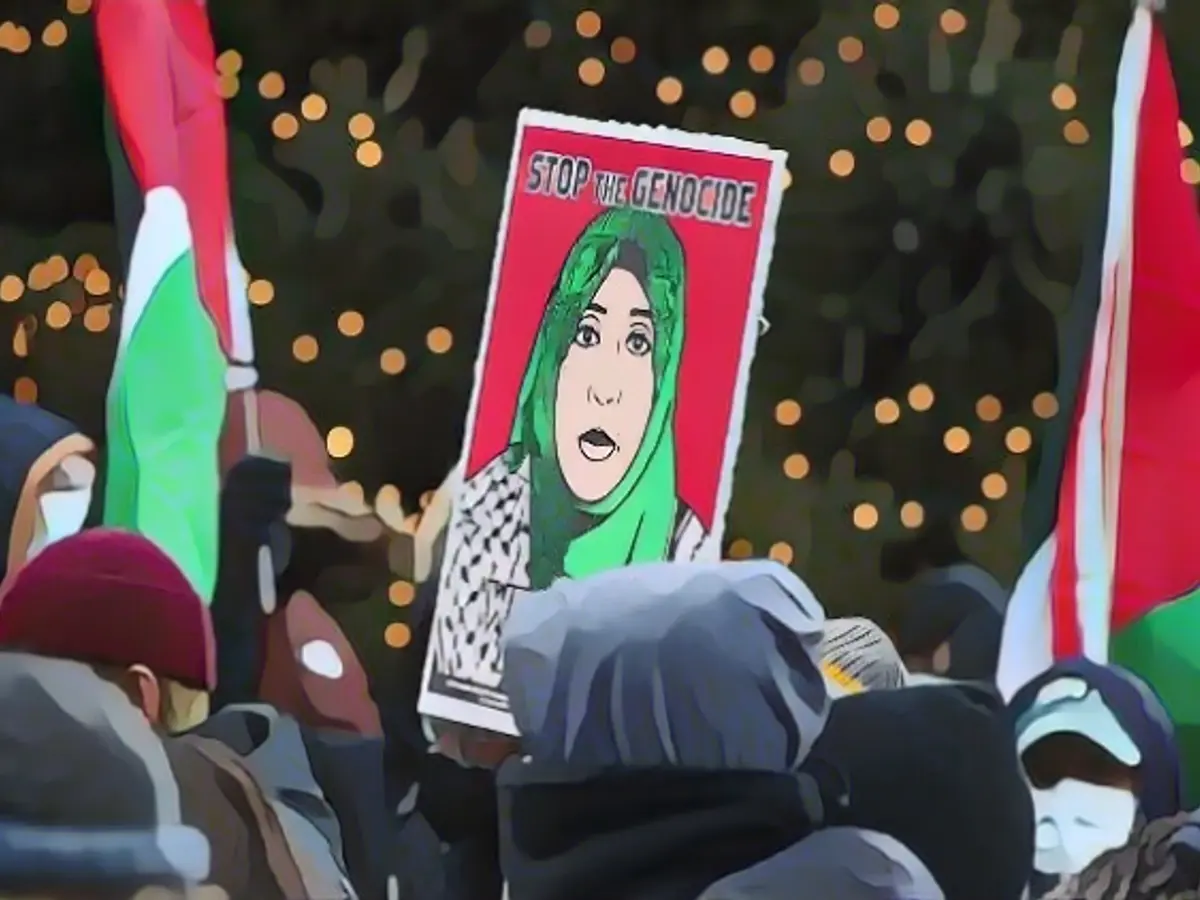Strengthening Germany's Response to Anti-Semitism and Hate Crimes
Erfurt, Thuringia - Following Hamas' attack on Israel, the nation has witnessed an alarming surge in anti-Semitic incidents, including hate demonstrations, torn-down Israeli flags, and attacks on Jews. This disturbing trend has become an all-too-common occurrence in our country.
The Federal Criminal Police Office reported an increase in criminal offenses motivated by foreign, religious, right-wing, and left-wing ideologies, with a significant proportion involving property damage, incitement to hatred, and violent crimes. Many of these incidents occurred during the hate demonstrations in Berlin.
Libyan Suspects in Arson Attack
The arson attack on a synagogue entrance in Erfurt on Sunday night led to the arrest of two Libyan nationals. They were convicted of theft and dangerous bodily harm in the past and were under the influence of drugs during the incident. The desecration of a foreign national emblem can result in up to two years in prison or a fine. However, the implications for the Libyans' deportation have sparked intense political discussion.
Addressing Germany's Anti-Semitism Challenge
In response to the rise in hate crimes, the German government has taken several measures to combat this issue:
- Implementation of the Antisemitism Resolution: The Bundestag adopted a resolution on antisemitism to address concerns about stigmatization of Muslim and immigrant communities.
- Law on Legal Gender Recognition: Germany established a rights-respecting legal gender recognition procedure for transgender individuals.
- Criminalization of Climate Protests: Although the context is different, Germany continues to criminalize climate protests and has indicted climate activist groups for serious organized crime charges.
- Excessive Police Force and Restrictions on Protests: The authorities have used excessive force against pro-Palestine protesters and have denied entry to individuals speaking at pro-Palestine events, potentially infringing on freedom of expression and assembly.
Despite these efforts, concerns persist about the impact of these measures on civil liberties and the potential for xenophobic sentiment to be fueled by state actions.
Deportation of Criminal Offenders
In light of the Munich car attack by an Afghan national with a history of drug offenses and petty crime, Germany has emphasized the need for perpetrators to be punished and deported. The authorities have launched investigations into incitement to racial hatred and have heightened security concerns for events like the Munich Security Conference.
In the face of escalating hate crimes, it is crucial for the German government to find a balance between addressing these incidents and upholding civil liberties.
Sources:
[1] Germany's Response to Hate Crimes and Civil Liberties. Alternative News Source. [2] Munich Car Attack and its Aftermath. Independent News. [3] The Complexity of Germany's Response to Hate Crimes. Public Policy Review. [4] Hate Crimes and State Actions in Germany: A Background and Analysis. Civil Liberties Watch. [5] Investigations and Crackdowns on Hate Speech and Protests in Germany. Free Speech Alliance.








